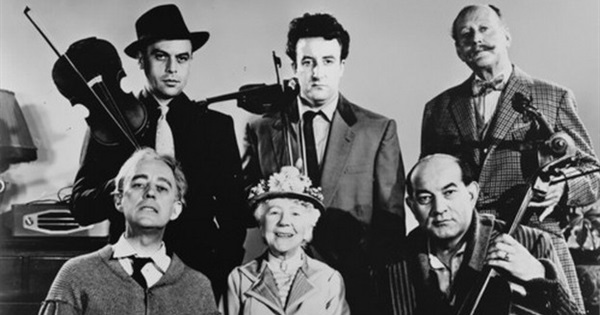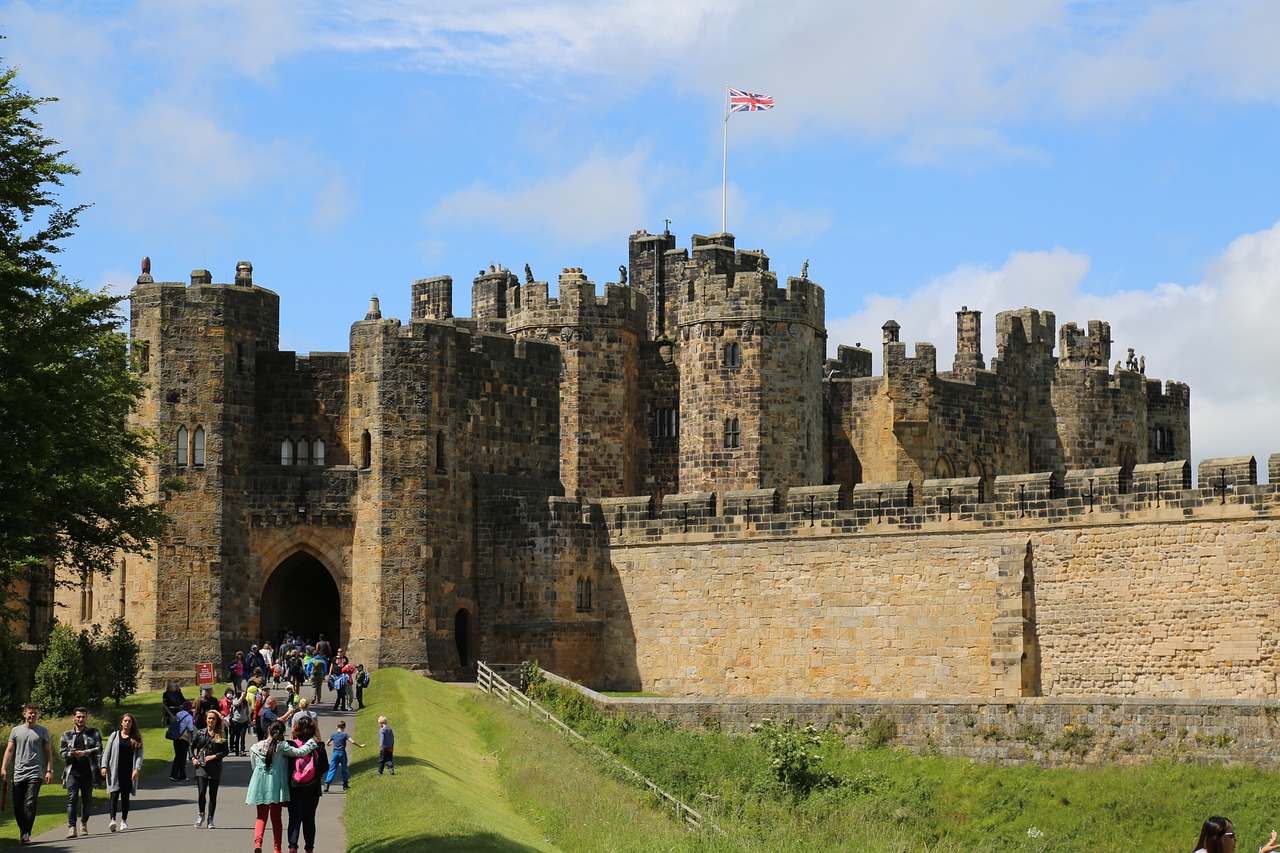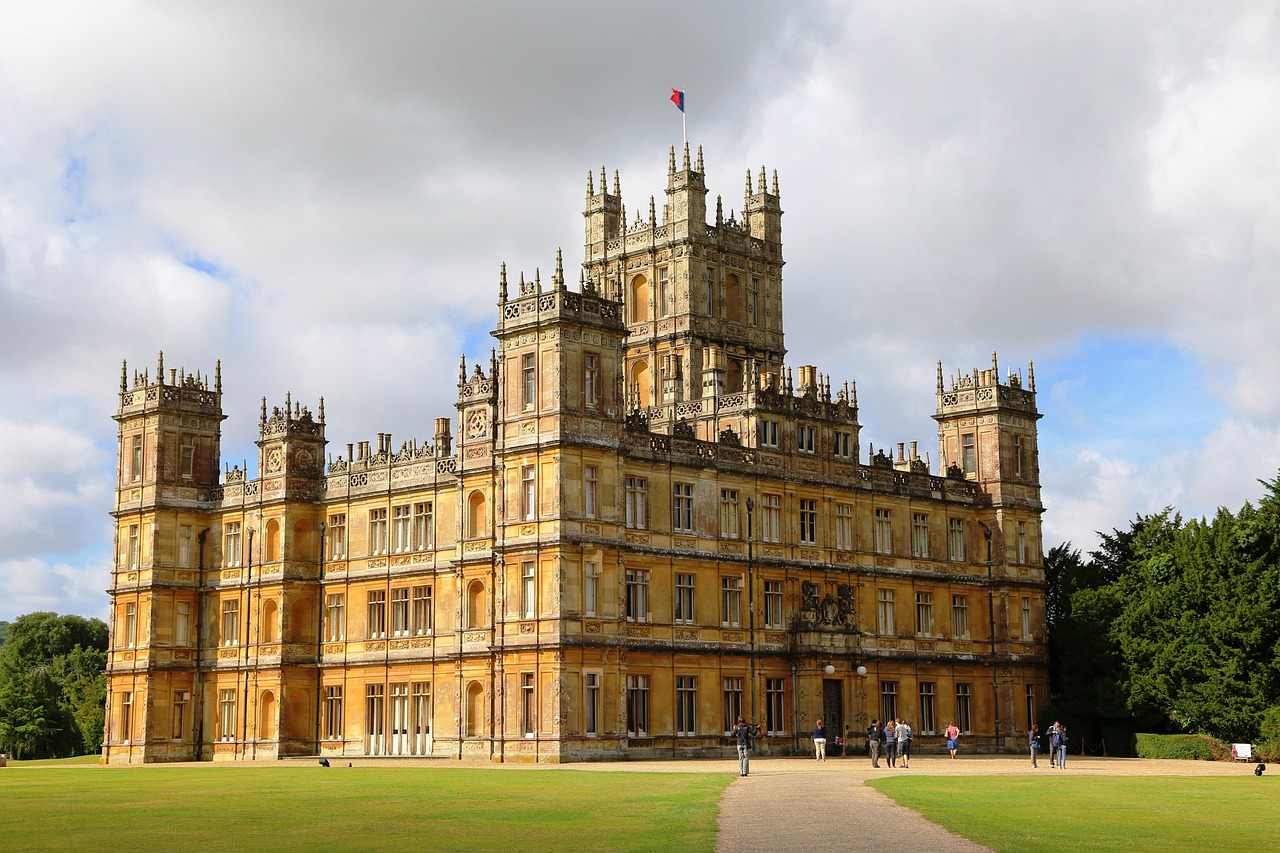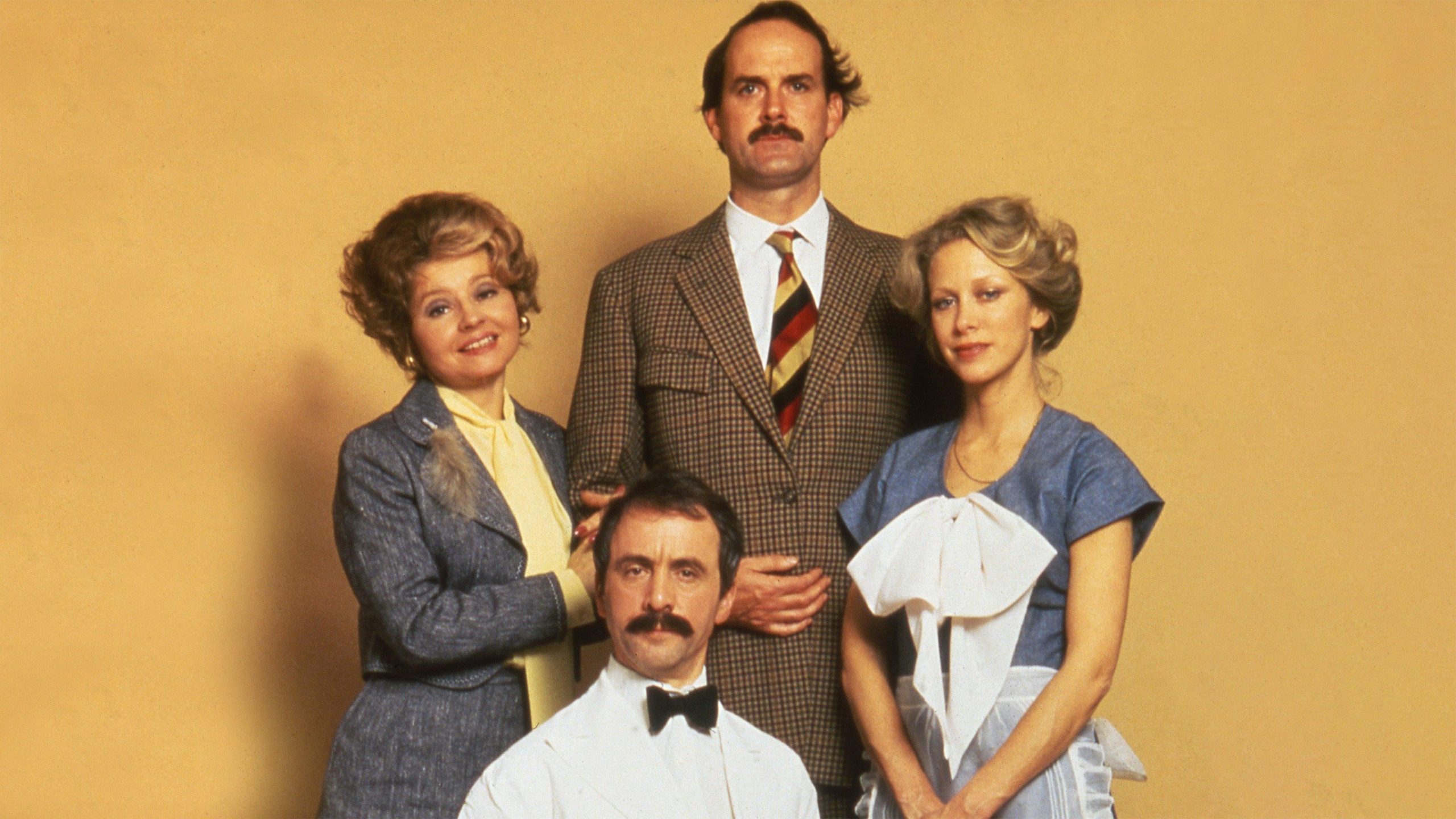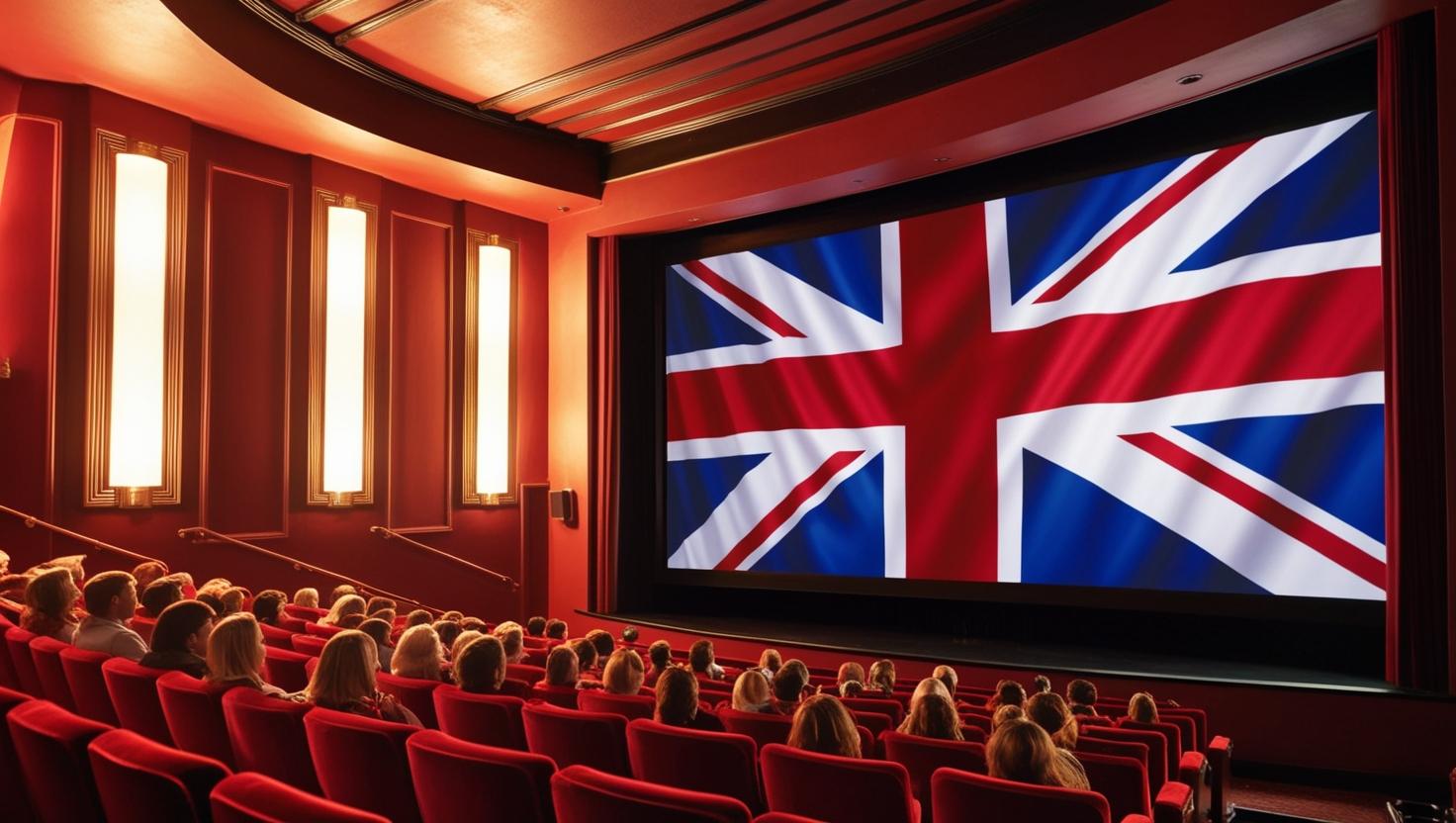
The concept of a “British film” extends beyond simple production origins. For this exploration of cinema, we consider any film that significantly engages with British life, culture, history, or identity – whether made in Britain or abroad. From wartime classics to modern masterpieces, these films represent the breadth and depth of British storytelling on screen. We’ve chosen something for everyone with this list. Feel free to print this list off and check off the ones you’ve seen, or need to see!
This comprehensive list showcases the remarkable range of British cinema: from kitchen sink realism to lavish historical drama, from pioneering documentary to technical innovation. Whether produced in Britain or abroad, these films capture essential aspects of British experience and identity. Their influence extends far beyond the UK, shaping global cinema while maintaining distinctly British voices and concerns.
The Foundations: 1930s and 1940s
1. The 39 Steps (1935)
Alfred Hitchcock’s thriller set the template for chase films while showcasing Scotland’s dramatic landscapes. Robert Donat’s wrongly-accused man became the prototype for countless future protagonists.
2. In Which We Serve (1942)
Noël Coward and David Lean’s wartime collaboration captured the essence of British naval tradition. Based on Lord Mountbatten’s experiences, the film established the understated heroism that would define British war pictures.
3. Mrs. Miniver (1942)
Though American-made, this portrait of British civilian courage during the Blitz perfectly captured the home front spirit for wartime audiences.
4. The Life and Death of Colonel Blimp (1943)
Powell and Pressburger’s masterpiece examined British military tradition and honor through the life of one officer, creating a complex portrait of changing times.
5. Brief Encounter (1945)
David Lean transformed Noël Coward’s play into a quintessential British romance. The story of forbidden love between two married people in a railway station tearoom became a defining portrayal of British emotional restraint.
6. Great Expectations (1946)
Lean’s atmospheric adaptation brought Dickens to vivid life. The opening sequence in the graveyard remains a masterclass in creating tension.
7. Black Narcissus (1947)
Powell and Pressburger’s psychological drama about nuns in the Himalayas pushed technical boundaries while exploring themes of repression and desire.
8. The Red Shoes (1948)
Another Powell and Pressburger triumph that revolutionized the portrayal of dance on screen while exploring artistic obsession.
9. Hamlet (1948)
Laurence Olivier’s Oscar-winning adaptation proved that Shakespeare could work on screen while maintaining theatrical power.
10. The Third Man (1949)
Carol Reed’s noir thriller set in post-war Vienna created an unforgettable portrait of moral ambiguity, enhanced by Anton Karas’s iconic zither score.
The 1950s: Industry Evolution
11. The Dam Busters (1955)
Michael Anderson’s meticulous recreation of Operation Chastise balanced technical detail with human drama. The film’s innovative special effects influenced generations of filmmakers.
12. The Ladykillers (1955)
Ealing Studios’ darkest comedy starred Alec Guinness at his most sinister. The film combined macabre humor with social satire.
13. Bridge on the River Kwai (1957)
David Lean took Hollywood resources and applied them to a distinctly British story of duty and madness. Alec Guinness’s performance captured military honor taken to destructive extremes.
14. Night of the Demon (1957)
Jacques Tourneur’s adaptation of M.R. James’s story created sophisticated supernatural horror through suggestion rather than shock.
The 1960s: New Wave and Innovation
15. The Innocents (1961)
Jack Clayton’s adaptation of “The Turn of the Screw” established new standards for gothic storytelling, with Deborah Kerr’s performance capturing psychological deterioration.
16. Lawrence of Arabia (1962)
David Lean’s epic biography transcended its genre to become a meditation on identity and empire, with Peter O’Toole’s mesmerizing performance at its center.
17. From Russia with Love (1963)
The second James Bond film remains the most grounded, establishing the franchise’s blend of sophistication and action.
18. A Hard Day’s Night (1964)
Richard Lester’s Beatles film reinvented the music movie, using avant-garde techniques to capture the energy of youth culture.
19. Mary Poppins (1964)
Disney’s adaptation of P.L. Travers’s books created an enduring vision of Edwardian London that influences portrayals of the era to this day.
20. The Ipcress File (1965)
Michael Caine’s Harry Palmer provided a working-class counterpoint to James Bond while maintaining distinctly British cool.
21. If…. (1968)
Lindsay Anderson’s surreal meditation on rebellion in a public school captured the spirit of 1968 with striking imagery and Malcolm McDowell’s breakthrough performance.
22. Oliver! (1968)
Carol Reed’s musical adaptation of Dickens proved that grittiness and entertainment could coexist, winning multiple Academy Awards.
23. Kes (1969)
Ken Loach’s naturalistic story of a working-class boy and his kestrel brought kitchen sink realism to new heights.
The 1970s: Innovation and Darkness
24. Get Carter (1971)
Mike Hodges’ brutal gangster film redefined British crime cinema through its unflinching violence and regional setting.
25. A Clockwork Orange (1971)
Stanley Kubrick’s controversial adaptation created a dystopian Britain that commented on youth culture and social control.
26. The Go-Between (1971)
Joseph Losey’s adaptation of L.P. Hartley’s novel perfectly captured the British class system through a tragic summer romance.
27. The Wicker Man (1973)
Robin Hardy’s folk horror masterpiece combined paganism with police procedural, creating an unforgettable clash of beliefs.
28. Don’t Look Now (1973)
Nicolas Roeg’s Venice-set psychological thriller created a new language for horror through innovative editing and atmosphere.
29. Monty Python and the Holy Grail (1975)
The Python team’s first original film reinvented both comedy and historical drama with its irreverent approach.
The 1980s: Heritage and Innovation
30. Chariots of Fire (1981)
Hugh Hudson’s sports drama captured both period detail and eternal themes, its Vangelis score becoming synonymous with athletic achievement.
31. Local Hero (1983)
Bill Forsyth’s gentle comedy about American commerce versus Scottish tradition created a new template for fish-out-of-water stories.
32. A Room with a View (1985)
Merchant-Ivory’s adaptation of E.M. Forster’s novel defined heritage cinema while launching Helena Bonham Carter’s career.
33. My Beautiful Laundrette (1985)
Stephen Frears’ groundbreaking film tackled race, class, and sexuality in Thatcher’s Britain with remarkable nuance.
34. Hope and Glory (1987)
John Boorman’s semi-autobiographical tale of childhood during the Blitz showed the war through innocent eyes.
35. Withnail & I (1987)
Bruce Robinson’s cult classic about two unemployed actors captured the end of the 1960s with caustic wit.
36. A Fish Called Wanda (1988)
This Anglo-American comedy perfectly captured the cultural clash between British reserve and American exuberance.
37. Henry V (1989)
Kenneth Branagh’s directorial debut reinvented Shakespeare for modern audiences with visceral battle scenes and passionate delivery.
The 1990s: British Renaissance
38. The Madness of King George (1994)
Nicholas Hytner’s adaptation brought humor and humanity to royal illness through Nigel Hawthorne’s masterful performance.
39. Sense and Sensibility (1995)
Emma Thompson’s screenplay brought Jane Austen’s novel to vibrant life under Ang Lee’s sensitive direction.
40. Trainspotting (1996)
Danny Boyle’s adaptation of Irvine Welsh’s novel captured the energy of 1990s Britain with style and substance.
41. Brassed Off (1996)
Mark Herman’s story of a colliery brass band during pit closures combined political commentary with heart.
42. The Full Monty (1997)
Peter Cattaneo’s comedy about unemployed steelworkers turning to stripping combined social commentary with crowd-pleasing humor.
43. Mrs. Brown (1997)
Judi Dench’s portrayal of Queen Victoria’s relationship with John Brown examined royal grief and scandal.
44. Shakespeare in Love (1998)
John Madden’s romantic comedy imagined the young Shakespeare finding his muse while celebrating theatrical tradition.
45. Lock, Stock and Two Smoking Barrels (1998)
Guy Ritchie’s kinetic crime comedy created a new visual language for British gangster films.
46. Elizabeth (1998)
Shekhar Kapur’s dynamic portrayal of the young Elizabeth I reinvented the historical biopic.
47. East Is East (1999)
Damien O’Donnell’s comedy-drama about a Pakistani family in 1970s Salford balanced cultural clash comedy with serious examination of identity.
The 2000s: New Millennium, New Vision
48. Billy Elliot (2000)
Stephen Daldry’s story of a miner’s son who wants to dance used the miners’ strike as backdrop for a universal tale of self-discovery.
49. Bridget Jones’s Diary (2001)
Sharon Maguire’s adaptation updated Pride and Prejudice for modern London with winning charm.
50. Gosford Park (2001)
Robert Altman’s upstairs-downstairs murder mystery deconstructed British class society with wit and precision.
51. 28 Days Later (2002)
Danny Boyle reinvented the zombie genre with this apocalyptic vision of Britain.
52. Bend It Like Beckham (2002)
Gurinder Chadha’s film about a British Asian girl pursuing her football dreams celebrated multicultural Britain.
53. Love Actually (2003)
Richard Curtis’s interweaving stories of London love created a new template for ensemble romantic comedies.
54. Shaun of the Dead (2004)
Edgar Wright’s “rom-zom-com” proved that British comedy could reinvent genre films.
55. Pride & Prejudice (2005)
Joe Wright’s adaptation brought new energy to Austen’s novel with stunning cinematography and contemporary sensibilities.
56. The Queen (2006)
Stephen Frears’s intimate portrait of Elizabeth II during the week after Diana’s death humanized the monarchy.
57. This Is England (2006)
Shane Meadows’s semi-autobiographical film about skinhead culture provided a powerful examination of youth and belonging.
58. Hot Fuzz (2007)
Edgar Wright’s action-comedy satire of both Hollywood cop movies and village life created a uniquely British blend of genres.
59. Atonement (2007)
Joe Wright’s adaptation of Ian McEwan’s novel used innovative techniques to explore truth and memory.
60. Slumdog Millionaire (2008)
Danny Boyle’s Oscar-winner showcased British filmmaking talent while telling a universal story.
The 2010s and Beyond: Contemporary Excellence
61. The King’s Speech (2010)
Tom Hooper’s intimate drama about George VI’s stammer made constitutional crisis deeply personal.
62. Attack the Block (2011)
Joe Cornish’s alien invasion film set on a London council estate combined social commentary with genre thrills.
63. Tinker Tailor Soldier Spy (2011)
Tomas Alfredson’s cold war thriller brought John le Carré’s complex novel to the screen with remarkable precision.
64. Skyfall (2012)
Sam Mendes brought James Bond home in this meditation on age, loyalty, and tradition.
65. About Time (2013)
Richard Curtis’s time-travel romance explored very British themes of family and making the most of life.
66. Paddington (2014)
Paul King’s adaptation captured British values of tolerance and inclusion with charm and wit.
67. The Theory of Everything (2014)
James Marsh’s Stephen Hawking biopic focused on the human story behind scientific genius.
68. The Imitation Game (2014)
Morten Tyldum’s portrayal of Alan Turing highlighted both wartime genius and social prejudice.
69. I, Daniel Blake (2016)
Ken Loach’s powerful critique of the benefits system showed that social realism remains vital.
70. Dunkirk (2017)
Christopher Nolan’s innovative war film eschewed traditional narrative for pure cinema.
Recent Achievements (2018-Present)
71. The Favourite (2018)
Yorgos Lanthimos’s irreverent take on Queen Anne’s court reinvented the costume drama.
72. 1917 (2019)
Sam Mendes’s seemingly single-shot World War I drama created unprecedented immersion in wartime experience.
73. The Father (2020)
Florian Zeller’s adaptation brought new understanding to the experience of dementia through innovative structure.
Additional Essential Films Across the Eras
74. The Railway Children (1970)
Lionel Jeffries’ adaptation of E. Nesbit’s novel captured the innocence of Edwardian childhood while dealing with themes of family separation and resilience.
75. Quadrophenia (1979)
Franc Roddam’s adaptation of The Who’s rock opera captured the mod culture of the 1960s while exploring timeless themes of youth rebellion.
76. Pink Floyd: The Wall (1982)
Alan Parker’s visualization of Pink Floyd’s album combined animation with live action to create a uniquely British meditation on war and isolation.
77. A Man for All Seasons (1966)
Fred Zinnemann’s portrayal of Sir Thomas More’s principled stand against Henry VIII exemplified British ideals of conscience versus authority.
78. The Lion in Winter (1968)
Anthony Harvey’s historical drama brought the Plantagenet family’s power struggles to vivid life through extraordinary performances.
79. Sunday Bloody Sunday (1971)
John Schlesinger’s groundbreaking drama about a love triangle brought new maturity to British cinema’s treatment of sexuality.
80. Secrets & Lies (1996)
Mike Leigh’s drama about family and racial identity showcased his improvisational style while exploring modern British social issues.
81. The English Patient (1996)
Anthony Minghella’s adaptation of Michael Ondaatje’s novel created a sweeping romance against the backdrop of World War II.
82. Calendar Girls (2003)
Nigel Cole’s true story of Yorkshire WI members creating a nude calendar celebrated British community spirit and determination.
83. Fish Tank (2009)
Andrea Arnold’s raw portrait of an Essex teenager’s life captured contemporary working-class experience with unflinching honesty.
84. An Education (2009)
Lone Scherfig’s coming-of-age story set in 1960s London captured a moment of social change through a teenager’s eyes.
85. Made in Dagenham (2010)
Nigel Cole’s portrayal of the 1968 Ford sewing machinists’ strike combined social history with uplifting drama.
86. Submarine (2010)
Richard Ayoade’s stylish coming-of-age film brought a distinctive voice to British teen cinema.
87. Weekend (2011)
Andrew Haigh’s intimate drama about a brief romance between two men in Nottingham brought new realism to British LGBT cinema.
88. Under the Skin (2013)
Jonathan Glazer’s sci-fi art film starring Scarlett Johansson used Glasgow locations to create an alien perspective on humanity.
89. Pride (2014)
Matthew Warchus’s true story of gay activists supporting Welsh miners created an uplifting portrait of unlikely solidarity.
90. 45 Years (2015)
Andrew Haigh’s subtle drama about a long marriage facing a crisis showcased Charlotte Rampling’s extraordinary performance.
91. Lady Macbeth (2016)
William Oldroyd’s adaptation of a Russian novella transplanted to Victorian England created a stark portrait of power and moral corruption.
92. God’s Own Country (2017)
Francis Lee’s Yorkshire-set romance brought new perspectives to British rural drama.
93. The Personal History of David Copperfield (2019)
Armando Iannucci’s fresh take on Dickens embraced contemporary diversity while maintaining period authenticity.
94. Saint Maud (2019)
Rose Glass’s psychological horror about a hospice nurse created a distinctly British take on religious mania.
95. The Dig (2021)
Simon Stone’s archaeological drama about the Sutton Hoo discovery explored class and academic prejudice in pre-war Britain.
96. Belfast (2021)
Kenneth Branagh’s semi-autobiographical story of childhood in Northern Ireland during the Troubles balanced personal memory with historical trauma.
97. Spencer (2021)
Pablo Larraín’s impressionistic portrait of Princess Diana created a new approach to royal biography.
98. The Electrical Life of Louis Wain (2021)
Will Sharpe’s biopic of the eccentric artist combined whimsy with mental health awareness.
99. Living (2022)
Oliver Hermanus’s remake of Kurosawa’s Ikiru, transplanted to 1950s London, created a distinctly British meditation on life and death.
100. Empire of Light (2022)
Sam Mendes’s portrait of a coastal cinema in the 1980s explored personal and social upheaval through British cultural institutions.
The future of British film looks bright, with new voices emerging and traditional strengths evolving. As technology advances and audiences change, British cinema continues to combine tradition with innovation, telling universal stories through distinctly British lenses.
